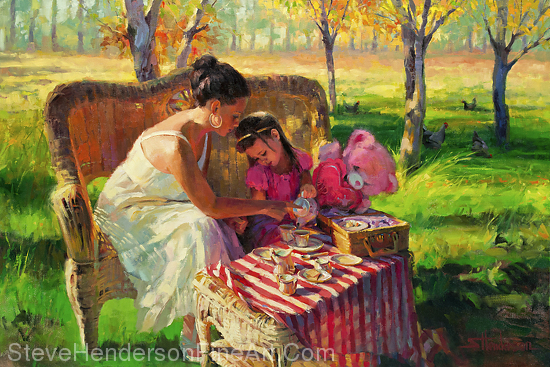For many people, the one thing that stands between their leaving a church situation that is not working for them, or staying within and being unhappy, is friendship.

Understandably, wherever we spend our time is where we make friends, colleagues, acquaintances, and social connections, and in a society that is increasingly distant and preoccupied, church is one of the major sources of fellowship.
This is a good thing and a bad thing, because while church can function as a one-stop-meets-all source for human companionship, it can also result in a total absence of invitations to holiday parties when we leave.
But staying in a situation that we increasingly dislike, just so we don’t lose all our friends, isn’t the best solution.
So, in answer to the question, “If I leave church, will I lose my friends?” this is what our family, and others like ours, have discovered when we made that final break:
We’ll Lose Some
1) Yes, you will lose friends. It isn’t such a bad thing, at least once in one’s life, to discover who are really our friends, and who aren’t, and many people painfully find this out when they go through a hard time, are publicly excoriated somehow, or leave church.
As I mentioned in Are You in the Process of Leaving Church? this is a natural result of being outside the group, and while some well-intentioned people do not mean to drop us, it’s inevitable that, if their social life revolves around church, and its work parties, small groups, leadership meetings, study sessions and so on, the way yours used to, then they won’t have time to get together, informally, and just be friends — the same way that you never used to have time.
These were never friendships in the first place — they’re more like network association within an office — and losing something so shallow really isn’t much of a loss.
We’ll Gain Some
2) You will gain friends. Don’t give up on your acquaintances from church: freed from the structured hierarchy of the system, some people whom you barely noticed may come forward and actually want to be friends. Realistically, don’t look for anyone from the upper crust leadership level, although there may be a Nicodemus or two hiding away in there.

In our own lives, we have come to know a number of people in our former church — who still attend — in a deeper and better manner than we ever experienced while we were purportedly fellowshipping together. Toward one woman especially I always felt a kinship to, and yet we could never connect, because we didn’t circulate in the same fellowshipping groups. After a number of years, however, God threw us together in a situation where we freely and engagingly connect, and a longterm prayer is perfectly answered.
Define “Friend”
3) You will redefine the term, “friend.” TV, movies, and the public school system give us the illusion that friends are all roughly the same age and economic level. God has other ideas.
In His mind, we are all children of the same Father, and there is no reason that we cannot interact together, but we don’t. One of the favorite birthday parties we threw for our middle daughter featured a guest list of some 12 people, ranging in age from 2 to 65, the birthday girl being 10. They were all her friends, and having them in the same place, throwing water balloons at one another, is a memory that sticks.
In Luke 14:15-24, a man giving a banquet is frustrated by the number of invited guests who are too busy to partake of being his friend. So he tells his servant,
“Go out quickly into the streets and alleys of the town and bring in the poor, the crippled, the blind and the lame,” and when there were still chairs to be filled, “Go out to the roads and country lanes and make them come in, so that my house will be full.”
Our Lord is not concerned that the socially correct people are at His table, and neither should we so be. If we are honest with ourselves, we will recognize that we ourselves are not socially correct.
Keep your eyes, and your hearts, open. God will bring people into your life from the most unexpected places: they need you; and you need them.
Family Matters
4) You’ll look at your family in a different way. Again, thanks to our public school mentality, we overlook that members of our family — our spouse, children, siblings, parents, cousins, uncles, nieces, in-laws — can be friends as well, and indeed, my best friends are in that list.
“Dysfunctional” has become such an operative word that we assume most families are just that: weird, broken, defective, unfit — words that I would use to describe many peer-related friendships from junior high, high school, college, and the workplace, actually. Dysfunction thrives in a society that distances itself with one another, so focused on being busy and productive, that there is no time to play a game, eat a meal at the dining room table, or just talk, face to face.
If there are other people in your household who are sleeping in on Sunday as well, get to know one another better, and put into practice your friendship on the closest neighbors you have: your family.
Don’t Be Afraid of Yourself
5) You’ll walk alone, but you won’t dry up and blow away because of this. Again, thanks to TV, movies, and schticky magazines, we operate under the assumption that everyone — other than us — has lots and lots of friends, and when we find ourselves alone on a Friday night, or sitting solo at the potluck table, then we’re convinced that we are the only loser God created.
It’s okay to be alone, and indeed, God’s quiet voice is more easily heard without background distractions. Use the time to train yourself to read Scripture (if you are a long-term church goer, you may not know how to do this), pray, meditate, and reflect on God’s beauty, love, and grace.
Only people who have experienced being alone can spot another person, within a group, who is standing alone, and they make the overture of friendship.
Life won’t end if and when you decide to leave church, and if you are patient and merciful with yourself and your situation, you’ll look back on this, 2 months, 10 months, 5 years from now and marvel:
“Why did I wait so long to move? What was I scared of?”
Thank You
Thank you for joining me at Commonsense Christianity, where we interact with people everywhere — at the grocery store, in our home during a night of games, over the Internet, on the phone, by letter, at an informal tea, in the garden.
Posts complementing this one are

